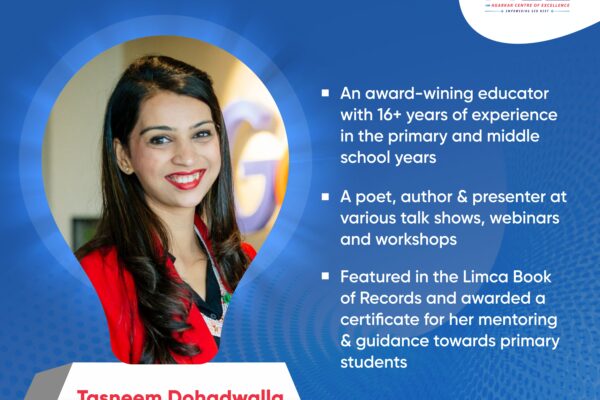“My kid runs runs away when I make her sit to write” – Mum whose daughter is 5 years
“It’s emotional for me because I cannot get my son to sit in one place and finish his homework which is all demanding written work” – Mommie whose son is 10 years
“It’s frankly an uphill task. Every time his teacher says he throws tantrums in class when it comes to writing.” Mother of a boy who is 8 years
And the anxiety is the same for parents of children who are in Middle School, and for that matter High School. Every educator has been questioned, consulted, challenged and even had some very unpleasant words come their way about why the children cannot write, and why can’t it be done in school.
For starters, parents do recognise that India has been in lockdown for almost two years, children missed on the routines that physical world presents with the writing tasks. Having said that there has been incredible effort on the part of the teachers to improvise so that the years were not a write-off and learning happened.
Was it ideal? Not at all and that is a reality. Did the kids learn anything? Well yes! They used technology like they never would in the physical, they spent time with family which otherwise never happens. They discovered ways to manage without meeting friends and teachers in the physical sense. Many picked up hobbies, many picked up life skills. Many opened up and communicated, many excelled in research, many begun to enjoy the world of books.
Our children coped.
The question to be asked is that, why are these not considered as skills and why don’t we consider learning to adapt and cope as critical? Why is this not important that they emerged with their own understanding of the world, and why cannot we give credit for them to come through what is completely unnatural and quite frankly, none of us have had our childhood days robbed of the joy of learning in a physical school, so no kudos to the kids in lockdown for evolving?
The answer to this simply lies in what has been wired into our culture. Let’s go back to our growing up days, those were the memories we carry, where that’s all we did. Write. Sometimes, aimlessly.
Parents are happy to see pages and pages of written work without asking is it necessary, is this developmentally appropriate. Parents of primary children (Grades 1 to 5) are quick to compare schools basis of the quantum of worksheets and not the content which is understood.
Again, the reminder, these years were not ideal and we as educators recognise some learning lags with the written work.
But we must remind one and all that quantity over quality will never win the race, and this race is a long marathon where we all have to take time (with a lot of creative ideas and innovation) to fill the gaps and strengthen the process.
Foundational years (Nursery to Grade 2 (3 years to 7 years) are not to be decided about formation of letters and sentences. Fine motor skills are being developed and are work in process, which need multiple manipulatives to create a muscle dexterity and memory. The stronger the exposure to different tools, toys, learning equipment, activities, play and exercises, the more ready these children are to launch into writing tasks by the time they come to Preparatory years (Grades 3 to 5, ages 8 to 10 years). However, if this was forced or rushed, children get tired to grip the pencil, given the force that it warrants to write for longer period of time.
I challenged a parent to write using a pen (which by the way does not create the same pressure as a pencil to write) a short essay. About one side of an A4 sized sheet about her experience during lockdown. I gave her half an hour to complete the task. She gave up in ten minutes, was checking my insta posts of yesterday and smiled when I returned to say, “Ok, got your point.”
My point being quite simple, this generation uses the gadgets faster than we ever will because they got used to it, while their finger muscles lost their memory (because touch is so much easier in terms of pressure than writing) and the grip, lost its consistency it had when in the physical world.
We do this successfully at ACE as consultants for various schools – break down the writing tasks with short goals and gradually get the teachers to build it up. We provide exercise strategies and equipment to be handled that will strengthen the muscles simultaneously. We mentor the teachers to treat the next 3 months as a bridging period and move from shorter tasks to the longer ones over a period of time.
Advice to parents is to support this wholeheartedly and not be obsessed with writing which by the way as language teachers will gladly point out comes last after listening, speaking and reading is developed. We call it LSRW. There is science and logic to language acquisition and fast forwarding any stage results in tantrums and frustration for all.
If the child has not been exposed to different experiences, ideas, books or conversations including music, performing arts and sports (listening), the child struggles with using appropriate words when expressing (speaking), and is unable to enjoy the reading process because phonetically he/she is unfamiliar with the ‘rules’ of the very complicated English Language and lastly when it comes to writing without ideas that emerge largely through the reading stage, grammar is a challenge and then writing anything without spelling or tense errors occurs. At this stage demotivation sets in, and the child gives up. Not to mention development of their finger muscles to ‘write’.
For the sake of these children who have battled some tough times, go easy on them. This is true of teachers and parents but unless there is clear communication about the process, there will always be a blame game.
Home-work – the child’s nightmare becomes a laborious task instead of one that re-enforces.
Writing should be fun, and yet it cannot be another Indian obsession to be lived all over again by creating pressure and blocking learning that happens in many ways.
The future is about careers that demand more of the kids than the written work, and examination boards are making changes to match pace.
It’s time we ditch this obsession, and begin to personalise and customise goals for each child so that the writing stage becomes ‘one other thing that has to be done’ for them instead of anxiety, over compensation and bribing the child or reprimanding, and destroying the joy that learning can bring to their world.
Time to consider who are the best orators in the world, and these will not be those who write as well. The listeners are great thinkers and those that write may shy away from speaking. Now what do you have to say to this?
I am sure it will be my next blog!












